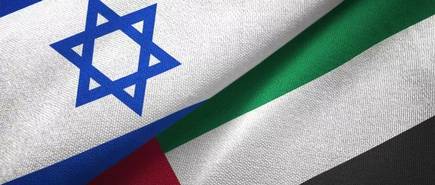For generations, animosity between the Jewish state in the Levant and the Muslim countries of the Arabian peninsula has lingered. Since the Arab-Israeli War in 1948, nuclear decimation between the former Soviet Union and the U.S. has been averted, Europe has reunified and restrengthened, the decolonization of Africa and South Asia has largely been completed, and China has risen to superpower status. Yet for all the diplomatic accomplishments and geopolitical shifts the world has observed in the past 70 years, recognizing Israel still seems infeasible for many of its Arab neighbors.
In mid-August, the United Arab Emirates and Israel announced a peace deal, disrupting the status quo in the Middle East. The deal called for the normalization of relations between the two countries, in addition to the halting of any Israeli annexation plans of the West Bank. Outlined below are the political and economic benefits that can be expected as a result of the peace deal/
Economic Benefits
First and foremost, the deal is expected to have tremendous economic benefits, as it paves the way for new financial investments in both countries. The hope is to stimulate both economies, which are reeling from pandemic-related shocks, and address an urgent need for economic restructuring in the Arab Gulf, which is notorious for its dependence on the oil trade. The economic stimulus from the deal is especially critical to revamping Israel’s economy, given that, in the second quarter of 2020, Israel’s GDP contracted by 8.1% and the unemployment rate reached levels not seen since 2016.
Previously, all business between Israel and the UAE was done under the table, meaning that financial transactions were diverted through third parties, and communication was made through overseas cell numbers and VPNs. Despite these hurdles, Israeli trade with the Gulf Cooperation Council is estimated to be about $1 billion. This economic activity overshadows Israel’s trade with the other Israeli-friendly Arab states, with trade revenues with Egypt and Jordan numbering $500 million and $160 million, respectively.
Within weeks of the peace deal, Israeli venture capital firms have been fielding calls from both sides about investment opportunities, Emirati billionaires have set up direct flights between the two countries, and some Israeli tech firms are shifting their sales strategies from East Asia to the newly opened Emirati market. The Israeli technology sector seems to be of particular interest to Emirati investors, who have been facing unfavorable domestic markets. As the UAE starts to shift away from oil dependency, Israeli tech provides a gateway into diverse investment portfolios, while generating revenue for the Jewish-majority state.
Political and Diplomatic Gains
There are clear political advantages for both parties. The peace deal created a positive media storm for Israeli Prime Minister Benjamin Netanyahu and his Emirati counterpart, President Khalifa bin Zayed Al Nahyan (KZN). Netanyahu especially needed this boost. Since 2016, Netanyahu has faced legal investigations for various allegations, including accepting gifts worth over $1 million, offering to diminish the circulation of a newspaper’s rival if their competitor granted him favorable coverage, and the misuse of public funds by his wife.
While he has been battling accusations of corruption, the Israeli PM has also faced criticism for his handling of the coronavirus. In the early days of the pandemic, Israel seemed to be ahead of the game in its containment of the virus. However, it wasn’t long after the Prime Minister called for Israelis to “have fun” that the virus truly devastated Israel. As of now, over 200,000 Israelis have had confirmed cases of the virus, and less than a third of Israelis are happy with the way Netenyahu has handled COVID-19, according to a poll conducted by the Guttman Center for the Study of Public Opinion and Policy.
The deal is expected to boost Netanyahu’s international status in addition to his domestic popularity, which is critical given that his recent foreign policy moves have been damaging for Israel’s international reputation. Most recently, the prime minister’s plans to annex the West Bank drew widespread international criticism, with the European Union even threatening to suspend Israel’s preferential trade agreement. Israel’s deal with the UAE helps mitigate Europe’s critique of its foreign policy with positive global coverage of a significant diplomatic accomplishment.
For the UAE, the deal helps shift the conversation away from the country’s involvement in the Yemeni Civil War and toward the country’s geopolitical importance and progress. Since 2015, news covering the UAE has been largely dominated by its role in the chaos in Yemen. In 2015, the UAE and Saudi Arabia intervened in Yemen to fight against the Houthi rebels, proxy fighters supported by Iran. The UAE contributed over 5,000 members of its own troops, trained 90,000 Yemeni soldiers, distributed billions of dollars and provided weapons. After five years of fighting, Yemen has been left with one of the world’s worst humanitarian crises: more than 1 million displaced and over 2 million children malnourished, with 400,000 of them in critical condition.
Emirati president, His Highness Sheikh Khalifa bin Zayed Al Nahyan (KZN), was left to assume responsibility for the carnage in this proxy war. Recently, KZN has shifted his foreign policy focus in Yemen to one of retreat. Since last summer, the UAE has been pulling forces out of the conflict and sending them back home. The purpose of this move has been to solidify a domestic defense against Iran, and to pull the UAE out of a war that has been costly and detrimental to its international reputation. The recent peace deal works alongside this important move in two ways. First, it helps to shift the international headlines regarding UAE from one of a warmonger with accusations of violating human rights to an image of a cooperative peacemaker. Secondly, creating a cooperative relationship with Israel helps to strengthen possible military ties against Iran, a common adversary.
Israel and the UAE’s shared animosity toward Iran was an important part of the peace deal.
Israel, under constant threat from Iran, is accustomed to both fighting Iranian proxy wars and confronting the state directly. On the Lebanese border and in Syria, Israel has faced off against Hezbollah, an Iranian ally based in Lebanon. When it comes to deterring Iran, Israel has leaned on its technological advantage. The nation’s most famous example of its technical prowess is it’s malware Stuxnet, which was created with the purpose of destabilizing Iranian nuclear facilities.
With the peace deal in place, the door may be opening for Israel and the UAE to support each others’ military goals and collaborate on intelligence. Already, the UAE is looking to purchase American F-35 stealth fighter jets, a task that would have been impossible if the state did not recognize Israel.
Looking Ahead
So, what are the future implications of this deal for the region’s stability? In the near future, Gulf states — notably Saudi Arabia — may be incentivized to also formalize relations with Israel, should the economic and security benefits of doing so become undeniable. Additionally, a positive relationship between the UAE and Israel could lead to increased military and business ties between Arab Gulf states and Israel. Already Bahrain, another member of the Gulf Cooperation Council, announced its intent to normalize ties with Israel.
The strength of this budding alliance depends on the ability of Middle Eastern states to place aside past tensions and fully support the success of their regional neighbors. If Israel becomes skeptical of improved Arab militaries, or Arab states start to circumvent Israel, cracks in the alliance will form. There is also the possibility of a Thucydides Trap for Iran, which could see the Arab-Israeli alliance growing stronger and decide to take action before its opponents gain an upper hand. Increased Iranian aggression is particularly dangerous for the region given the state’s alliances with armed rebel groups in several Middle Eastern countries. Thus, Middle Eastern states must remain alert and cautious, preparing for the possibility that Arab-Israeli cooperation prompts further Iranian aggression.
Nevertheless, the recent peace deal between the UAE and Israel is a refreshing turn in Arab-Israeli relations, representing a momentous step towards greater unity in the Middle East, and providing hope for countries plagued by failing economies and political turmoil in the pandemic era.






